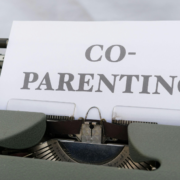Divorce sometimes provokes adversarial actions in people. If you are going through a divorce and your spouse has intentionally spent a large sum of money from your shared accounts, you might be feeling hurt, betrayed, or angry. Understanding your options can help you navigate this situation and start rebuilding your finances.
The most important factor here is the date of separation. If you and your spouse agreed to divorce and then they went on a spending spree, your case is much easier to prove.
Proving Their Financial Behavior
Perhaps your spouse went on a “revenge spending spree” as a way to retaliate against you for initiating a divorce or taking other actions they find unfavorable. Perhaps they gambled away your shared assets or spent a substantial amount of money on a vacation. In any case, the money is gone, and you are likely wondering what steps you can take next.
Again, we rely on the date of separation – and if your divorce is already filed, then even better.
Gathering evidence that your spouse intentionally wasted your money is key. Request copies of all financial records showing these activities. For example, your credit card statement will show all the transactions that led to the card being maxed out, along with the dates of each transaction.
These financial records will help you prove that the overspending was intentional and not part of your family’s normal spending habits.
Exploring Solutions for Wasteful Spending
Your divorce attorney can help you explore your options after your spouse intentionally wastes money in your shared accounts or shared assets. They can also petition the court to mandate that your spouse return the funds they spent, and we will work with you to ensure that any available funds are used to compensate you.
During the divorce proceedings, your attorney can help you request an equitable distribution of assets that accounts for the money spent by your spouse. In some cases, the court may adjust the division of marital assets to reflect one party’s excessive spending.
Preventing Future Spending and Rebuilding
Taking steps to safeguard your assets can help you prevent your spouse from further unauthorized withdrawals.
- Freeze all shared accounts and credit cards to prevent any unauthorized transactions.
- Monitor financial activity closely and notify your bank if you suspect any wasteful or extravagant spending by your spouse.
- Open a separate bank account and start transferring your income into it. Take caution when transferring funds from your existing accounts, as such actions could be scrutinized during your divorce proceedings.
- Have our team put clear agreements in place regarding all financial matters as we work to finalize your divorce.
Divorce has financial implications even when both spouses cooperate fully. You may want to consider taking steps to start rebuilding your financial situation now. For example, you might want to explore a part-time job or a higher-paying career path. It may also be helpful to start calculating whether you can afford major expenses, such as a mortgage or car payments, on your own.
Turn to Karen Ann Ulmer, P.C., for Assistance
If your spouse has spent an excessive amount of money from shared accounts, there may be additional challenges to prepare for during the divorce process. Having a legal professional on your side can help you respond to your spouse’s behaviors appropriately while protecting your interests.
Whether you are encountering a custody battle, alimony disputes, or other elements of a contested divorce, turn to Karen Ann Ulmer, P.C., for assistance. Call (866) 311-4783 to request a consultation.












